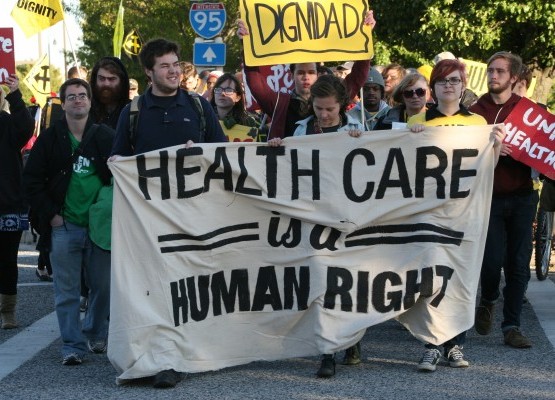Views expressed in opinion columns are the author’s own.
Politics broke the health care debate.
What should be a boring, detailed discussion is now part of the national performance of political theater. Health care is a fragile system where sweeping changes often do more harm than good in the short term. Politics, on the other hand, rewards fiery declarations and grand gestures, and the policies that most excite voter bases tend to also be the most economically disruptive. The two systems are therefore incompatible but forced together by the need for workable policy. Health care policy requires a fundamentally different approach than Washington offers, so if we want a robust health care system, voters need to develop an appetite for incrementalism.
Over the past few months, health care proposals have grown increasingly partisan and ridiculous. The American Health Care Act and Better Care Reconciliation Act both could have stripped many people of their insurance, but at least they made some sense — from a policy perspective. The two bills did offer some advantages to the Affordable Care Act, but most of the country thought the costs outweighed those benefits. However, as the Republican Party became desperate to pass some kind of Obamacare repeal, their policy proposals became less coherent. For example, Sen. Lindsey Graham (R-S.C) called the “skinny repeal” bill a “disaster” and “fraud” in a press conference. He went on to vote for it anyway, putting party loyalty over policy.
But despite their egregious flaws, the early efforts to repeal and replace Obamacare only changed specific details of the existing policy. The impact of those changes would’ve been far-reaching and devastating for some families, but at least the fallout would’ve been predictable. The most recent round of health care proposals, on the other hand, consists of sweeping, untested policy revisions. The Graham-Cassidy bill radically restructures the health care system to redistribute federal funds to the states as block grants, which gives states money without hard restrictions on what they can use it for. To make matters worse, Republicans hope to pass the bill by Sept. 30, a time frame so short the Congressional Budget Office will not have time to evaluate the bill. Pushing to pass such a politicized and sweeping change to the health care system without even a CBO evaluation is simply too risky. It may help the Republican Party in the next election cycle, but they risk jeopardizing a fifth of the economy in the process.
Of course, liberal health care policies can be just as political and short-sighted. Sen. Bernie Sanders’ (I-Vt) recent introduction of a Medicare for All program is blatantly a political move — he didn’t bother to propose a definitive way of funding it. Even if Sanders was able to fund the bill and eventually pass it, the intricacies of the new system would be dangerously uncharted and likely unstable. It’s as if Sanders and his bill’s co-sponsors are trying to build a tower from the top down.
I’m not against a universal health care system. There could also be value in a system run by the states. But, we can’t afford to make broad, reckless changes when people’s health and a fifth of the economy is at stake. We certainly need to experiment with our health care system, but we have to do so incrementally. We need to make sure our policies are for the people and not the party. If we can commit to the hard work of making small bipartisan changes over time, we may one day arrive at the best policy for the American people.
Nate Rogers is a freshman computer science major. He can be reached at nrogers2@terpmail.umd.edu.



